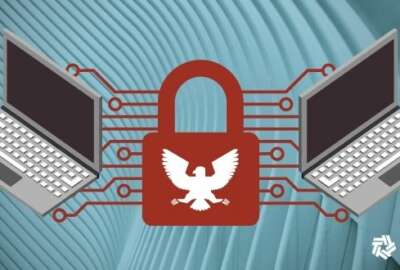

The program aims to fight the problem of "adversarial capital" by pairing companies working on promising military technology together with investors that DoD has...
The Defense Department on Wednesday rolled out a new initiative meant to protect its future supply chain from investors that might seek to turn U.S. intellectual property into foreign military capabilities.
The “trusted capital” program — first authorized by Congress in 2017 — has already been up and running as a pilot effort in some pockets of DoD. Officials announced Wednesday they had quietly expanded it to a wider pool of vendors and investors in December via an online marketplace, and are now actively seeking more applicants.
The program works by pairing “capital providers” the Defense Department has vetted with small and medium-sized companies who are working on dual-use or military technologies, but need influxes of cash to get their products off the ground.
The main objective is to keep those firms from partnering with investment funds that exist primarily to take an ownership stake in a U.S. company’s intellectual property and then transfer it to China or other potential adversaries, said Ellen Lord, the undersecretary of Defense for acquisition and sustainment.
“Many small and mid-sized companies in the Defense industrial base are vulnerable to adversarial capital, so we need to make sure companies can stay in business without losing their intellectual property, the foundation of so many critical technologies,” she told reporters. “Economic security can be undermined by acquisition of companies in the defense and dual-use sectors by entities that are U.S.-based, but are actually owned or controlled by adversarial foreign entities.”
Defense officials said 11 investment firms and 128 contractors had signed up for and been vetted through the program as of Wednesday morning. The initiative takes requests via a web portal, also launched in December. Investors are asked for basic corporate details; “capability providers” are asked to upload a white paper on the types of technologies they’re involved in.
After that, the department conducts “due diligence” to look for evidence that investment firms are free of foreign influence and that technology companies are working in one of the 27 sectors DoD is targeting for the trusted capital program.
As of now, the vetting process takes about a week, said Katie Arrington, the chief information security officer for DoD acquisition and sustainment. She said the department is using some of the same tools it used to vet potential suppliers during the COVID-19 pandemic.
“We were able to change the game on supply chain using commercially available tools, and one of them for the trusted capital program is called Exiger DDIQ. We run the companies through, and we can look at their financials for anything on the company, from who is working on the board, to where their financing has come from, legal issues, etcetera,” she said. “Those reports take about a day, and then I have a team inside the Pentagon of very qualified professionals that range from lawyers to accountants to security analysis people, and we vet the companies for adversarial impact.”
Beyond making the process as relatively friction-free as possible, the Pentagon also hopes to induce participation by offering tax advantages to companies who choose to participate in the marketplace, either as investors or as capital recipients.
Congress would need to approve any such incentives, but one proposal Lord advanced on Wednesday would formally designate “National Security Qualified Companies” and “National Security Qualified Funds” in the tax code. Those firms would have to opt in to the trusted capital marketplace and then agree to annual checkups to ensure they remain free of foreign influence.
“The intent of this proposal is to incentivize additional domestic investment from trusted sources of capital and diminish reliance on capital offered by adversaries within the national security innovation base,” Lord said. “This system of systems is focused on using market incentives to build broader relationships within the innovation ecosystem, and drive behavior within that ecosystem to crowd out adversarial capital to defend both our economic and national security.”
Copyright © 2025 Federal News Network. All rights reserved. This website is not intended for users located within the European Economic Area.
Jared Serbu is deputy editor of Federal News Network and reports on the Defense Department’s contracting, legislative, workforce and IT issues.
Follow @jserbuWFED


